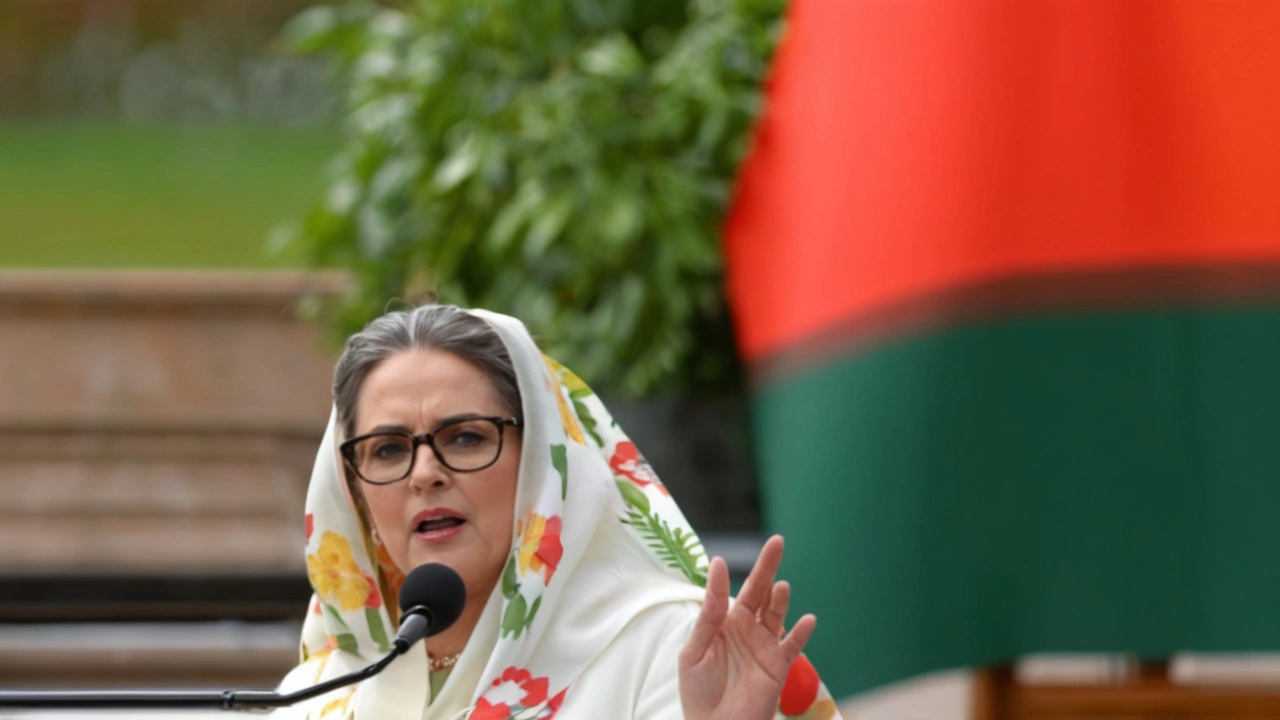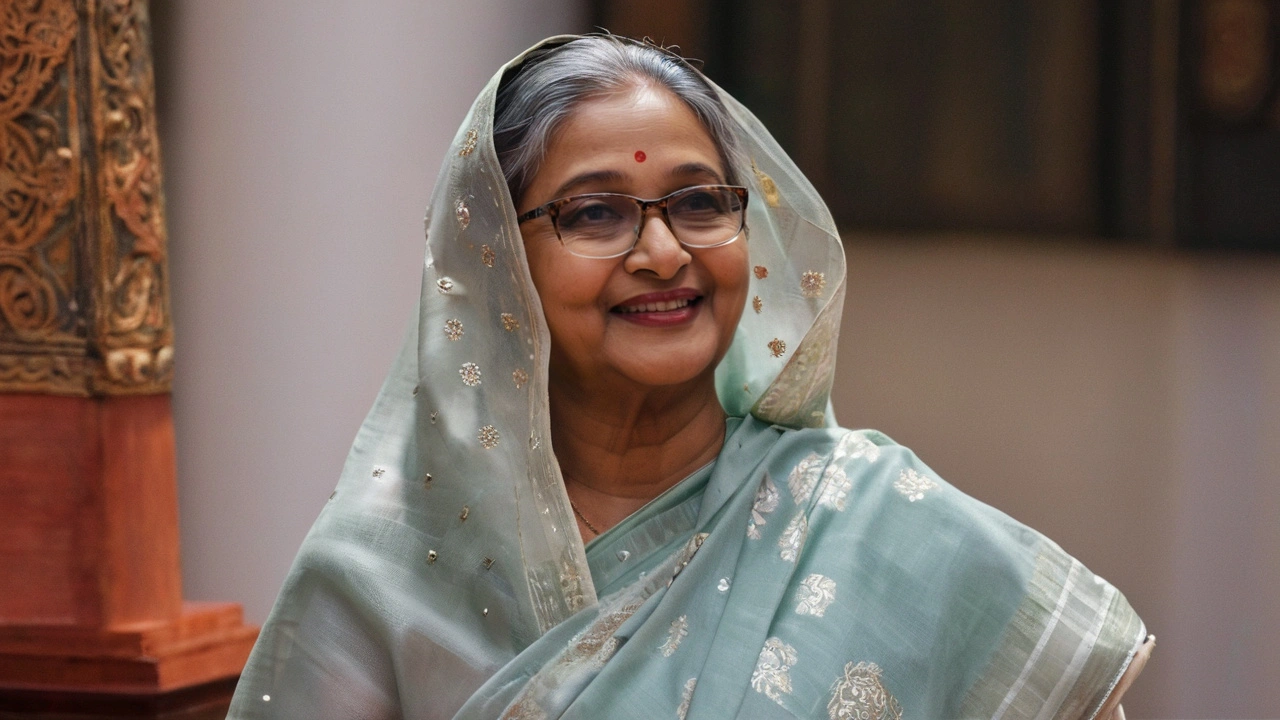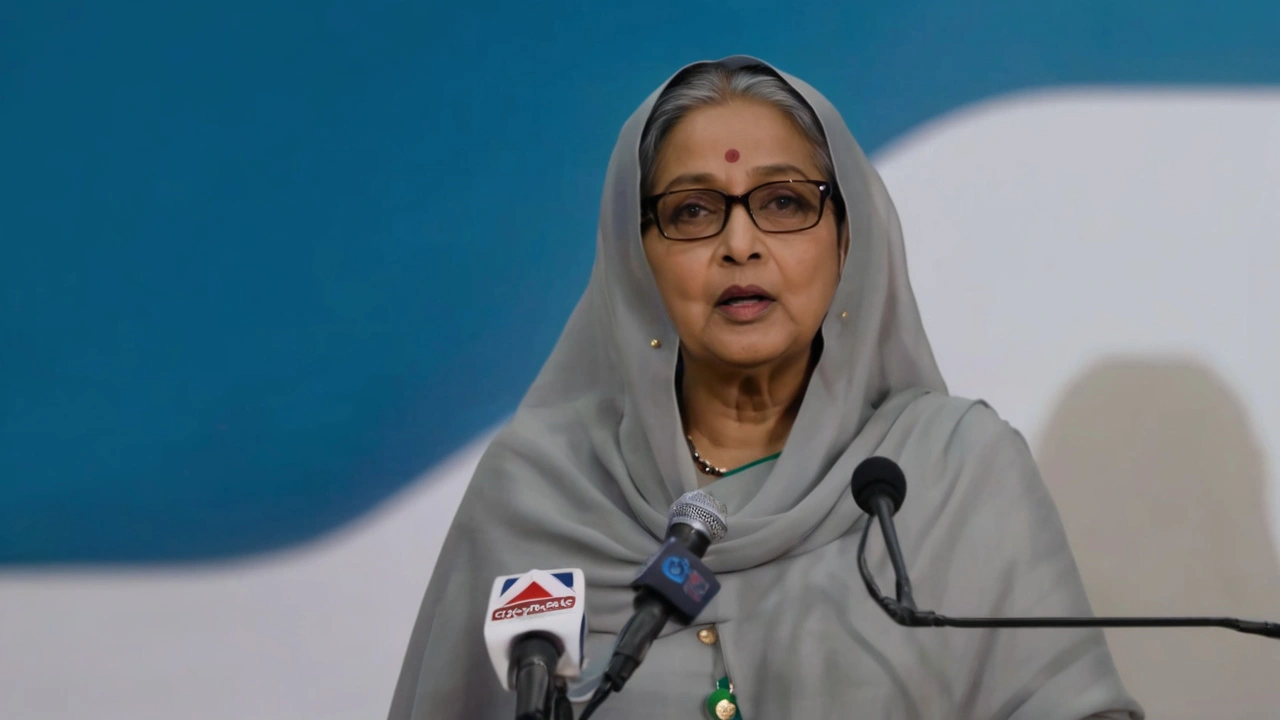Introduction: A Country in Chaos
In a dramatic turn of events, Bangladeshi Prime Minister Sheikh Hasina has fled the country amid escalating violence and civil unrest. The protests, which began with calls for her resignation, have intensified, culminating in the storming of the prime minister’s residence in Dhaka. As of now, the death toll has reached over 91, with numerous injuries reported, marking one of the most turbulent periods in recent Bangladeshi history.
The Rise of the Protests
The protests initially started as peaceful demonstrations led by opposition groups challenging the legitimacy of Hasina's government. Discontent had been brewing for months, with critics accusing the administration of corruption, economic mismanagement, and human rights abuses. The tipping point came when allegations of voter fraud surfaced, prompting mass mobilizations across the country.
The capital city of Dhaka became the epicenter of these demonstrations, with thousands of protesters converging near key government buildings. The government’s initial response was to deploy security forces in an attempt to quell the unrest. However, the heavy-handed measures backfired, with reports of excessive force used against demonstrators further inflaming public anger.

A Violent Climax
As the situation deteriorated, the protests took a violent turn. Protesters, now numbering in the tens of thousands, started clashing with security forces. Roadblocks were set up, and public transport was brought to a standstill. Reports of looting and property damage started to pour in, with businesses in the capital suffering significant losses. The unrest soon reached its peak when a large group of protesters managed to breach the security perimeter of the prime minister's residence.
Eyewitnesses described chaotic scenes as the once-impenetrable security barriers were overrun by an enraged mob. The residence, symbolizing the power and authority of the embattled leader, was ransacked. Items were reportedly looted, and extensive property damage was inflicted, sending a clear message to the incumbent government.
Government Response and International Reaction
In the face of this unprecedented crisis, the government's response has been criticized as woefully inadequate. Despite increasing the presence of security forces, the authorities have struggled to maintain control in the face of coordinated and widespread opposition. Government rhetoric has also failed to pacify the masses, with statements warning of severe repercussions for rioters falling on deaf ears.
Internationally, the reactions have been mixed. Neighboring countries have expressed concern over the stability of Bangladesh, fearing that the unrest could spill over and affect regional security. The United Nations has called for restraint and dialogue, urging both the government and the opposition to seek a peaceful resolution to the crisis.

The Fallout
With Sheikh Hasina fleeing the country, the political turmoil in Bangladesh is likely to intensify. The opposition has been quick to capitalize on the prime minister’s departure, calling for continued protests and pushing for a transitional government to oversee new elections. The power vacuum left in her wake has only added to the uncertainty, with fears of an escalation in violence.
Economic ramifications are also starting to show, with businesses shutting down and the stock market experiencing significant losses. Foreign investors, wary of the instability, are pulling out investments, which could lead to a prolonged economic downturn.
The Human Cost
Amidst the political chaos, the human cost of the unrest cannot be understated. The death toll stands at over 91, a figure that is unfortunately likely to rise as the violence continues. Hospitals are struggling to cope with the influx of injured, with medical supplies running low. Families who have lost loved ones are demanding justice, adding another layer of complexity to an already fraught situation.
The humanitarian crisis is further compounded by widespread looting, which has left many without their source of livelihood. The government, grappling with maintaining order, has been unable to provide adequate relief, leaving many to fend for themselves in this time of need.

The Road Ahead
As Bangladesh navigates through this crisis, the road ahead appears uncertain. The immediate priority for any interim administration will be to restore law and order while addressing the legitimate grievances of the people. Establishing a credible framework for new elections will be crucial in restoring trust in the political system.
For the international community, supporting Bangladesh through diplomatic means and providing humanitarian aid will be essential in helping the country stabilize. Observers agree that the current unrest is symptomatic of deeper, systemic issues that need to be addressed to prevent future occurrences. Only time will tell if Bangladesh can emerge from this crisis stronger and more unified.
For now, as the dust settles and the country takes stock, the hope among many Bangladeshis is for a return to peace and normalcy. But the scars left by the recent violence will take time to heal, marking a somber chapter in the nation’s history.


Shelby Mitchell
August 6, 2024 AT 04:19Kasey Lexenstar
August 6, 2024 AT 13:36Meanwhile, Western governments are still cozying up to autocrats as long as they keep the markets stable. Hypocrisy isn't a feature-it's the entire system.
Kurt Simonsen
August 7, 2024 AT 11:56Jitendra Patil
August 8, 2024 AT 07:19Sheikh Hasina kept order. She kept the lights on. And now? You think chaos will bring justice? It’ll bring famine, warlords, and Indian interference. Don’t be fooled by your own moral posturing.
Michelle Kaltenberg
August 8, 2024 AT 18:52Jared Ferreira
August 9, 2024 AT 05:12mona panda
August 10, 2024 AT 04:24Evangeline Ronson
August 10, 2024 AT 05:07Let’s not forget that.
Cate Shaner
August 10, 2024 AT 20:00Thomas Capriola
August 10, 2024 AT 21:02Rachael Blandin de Chalain
August 11, 2024 AT 03:41Soumya Dave
August 11, 2024 AT 05:53Stay strong. Stay united. This pain? It’s the price of freedom.
Chris Schill
August 11, 2024 AT 09:37cimberleigh pheasey
August 11, 2024 AT 13:26Tom Gin
August 12, 2024 AT 10:51Alex Alevy
August 13, 2024 AT 03:04Trevor Mahoney
August 13, 2024 AT 10:04And here’s the kicker: the same group funded the 2020 election fraud claims in the US. Coincidence? No. It’s a playbook. They don’t want Bangladesh to be stable. They want it fractured. Why? Because Bangladesh’s textile exports are the third largest in the world. Control the supply chain, control the world. They’re not after democracy-they’re after dominance. And we’re all just pawns in a game we didn’t even know we were playing.